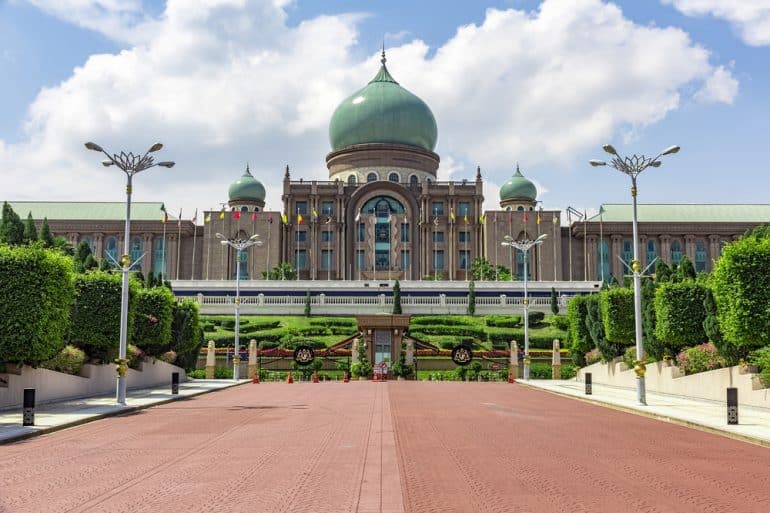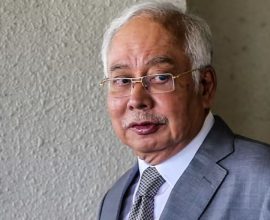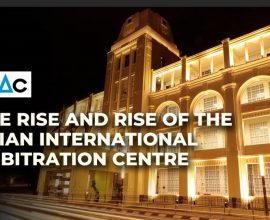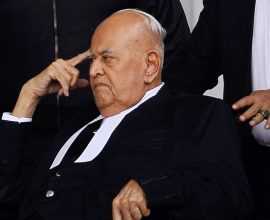How should we choose our top civil servants?
How should we choose our civil servants? Who chooses them? What are the criteria to be employed? How should they be fired? Should not civil society and Parliament have a role to play? Should not the public be consulted?
Little Dorrit
Charles Dickens, in his novel ‘Little Dorrit’, satirises the shortcomings of British society. He describes Britain as a society of classes; one that lacked any humane consideration for the masses.
Dickens portrays the omnipotence – and uselessness – of the British civil service by a character called ‘Lord Decimus Tite Barnacle’.
Barnacle ran a bloated bureaucracy.1Edited transcript of Lucy Kellaway’s ‘History of Office Life’, produced by ‘Russell Finch, of Somethin’ Else’, for Radio Four, UK. Episode three, ‘The Career Ladder’, broadcast at 13.45 BST, 24th July. It was a typical British civil service at work.
Before the 1850s, the UK government departments were bureaucratic islands.2‘Timeless values in an age of change’; Heywood, Sir Jeremy: Cabinet Secretary and Head of the Civil Service; 24 May 2015
Staff were appointed through patronage rather than merit.
Then came a legend: Charles Trevelyan was the Permanent Secretary to the Treasury (1840-1859). He was horrified by the ‘Barnacle types’ in the British civil service. He once described a civil service colleague as,
“… a gentleman who really could neither read nor write, he was almost an idiot.”3supra, Kellaway
Civil Service – A Chinese Invention
It was the Chinese Han Dynasty (206 BC to AD 220) that introduced competitive examinations for civil service officials.4supra, Heywood During the Sui Dynasty (581-618 CE) a proper civil service was born. When the Qin (or Manchu) Dynasty took control of China (1644 and 1911), the empire had trebled in size, from 150 million to 450 million.
This required an integrated national economy and a uniform administrative system: the Chinese civil service did the job.
The civil service examinations were based on the Confucian classics.
The examinations influenced school curricula. A uniform education system was followed all over China, from infant schooling to the tertiary examinations – from village to the imperial palace.
If a boy succeeded at every level of the examinations, it would propel him into the highest office in the country.5‘The Confucian Classics and the Civil Service Examinations: Living in the Chinese Cosmo; Understanding Religion in Late Imperial China (1644–1911), 5http://afe.easia.columbia.edu/cosmos/irc/classics.htm
An Examination made in hell
The examination itself was one made in hell.
It consisted of a series of dawn-to-dusk tests. Students had to memorise 400,000 characters of Confucian text and excel in various writing skills.
The pass rate was a mere 1.0% to 2.0%.
For Upward mobility, skill and ability, not patronage, mattered
Only boys showing “exceptional promise” and “having wealthy sponsors” could continue their studies for these examinations.
A child from the poorest family, having passed these examinations, could join the ranks of the educated elite. Success in the examination depended on two qualities: one’s mental prowess and ethical make-up: a student had to live by the key ideas of Confucianism.
In all this, one’s social position made no difference. The examination promoted meritocracy.6Ibid, ‘The Confucian Classics and the Civil Service Examinations.
Those who passed the Imperial Palace examination could rise to the highest post – they formed part of the imperial personal staff – to the emperor himself.
They were the mandarins, and they controlled all the corridors of power.
British Empire imports the Chinese Civil Service
The British were so impressed with the system, that they imported it into the British Empire.
We return to Trevelyan
As the British Empire expanded, British civil service officials began to borrow ideas from China.
When William Gladstone was appointed Chancellor in 1853, he asked Trevelyan to write a proposal to improve the civil service.
Trevelyan “gleefully tore into the mediocrity and inefficiency of the civil service” and wrote the ‘Northcote-Trevelyan Report’.
He recommended a proper system of examinations before an appointment, and proficiency in, “history, jurisprudence, political economy, modern language, political and physical geography … besides the staples of classics and mathematics.”
Trevelyan got all that from ancient China.
Power-mongers protested. They complained that,
“… any Tom, Dick or Harry who happened to be good at mathematics could be advising on secret treaties.”7Prof John Greenaway, University of East Anglia
The old system of patronage was “far better,” they argued,
“because, in theory, people tend to trust the nephews of friends of theirs.”8Op. Cit
So the report was “kicked into the long grass.”9supra, Kellaway
Seventeen years later, Trevelyan, got his way.
His recommendations were put into practice. That laid the foundation of the modern UK Civil Service.
After the Northcote -Trevelyan report, by 1869, it was reported that civil service commission had,
“eliminated all dunces…, while an entirely new spirit of economy and industry had been introduced … .”10Ibid
How do other countries select their senior civil servants?
One has to study how candidates for senior positions are chosen by the countries that practice either the Westminster Model (ours is one) and those who do a ‘republican’ version of it – the United States is an example.
How are Top U.S. Civil Servants appointed?
In the US, the “Constitution divides the responsibility for populating the top positions in the Federal government between the President and the Senate.”11Henry B. Hogue “Appointment and Confirmation of Executive Branch Leadership: An Overview”, June 22, 2015
Senior civil servants are appointed by a three-stage process known as ‘Appointments under the Advice and Consent Process’.
The White House nominates candidates cleared by the security services. A list is then sent to the Senate (akin to our Parliament). The Senate then considers the candidate’s suitability. Presidential appointees are routinely confirmed.
At the second stage, the Senate alone determines whether to confirm a nomination.
The confirmation process occurs mainly at the committee level. The committees investigate the candidate. They draw on information provided by the White House, and they collect information themselves.
The hearings explore nominees’ qualifications, articulate policy perspectives, or raise related oversight issues.
They provide “a public forum to discuss a nomination.” The hearings provide senators and nominees an opportunity ‘to go on record’ with particular views or commitments.
Once the Committee work is over, the committee votes whether to report a nomination to the full Senate.
The Committee can take one of three approaches: it may report the nomination favourably, unfavourably, or without any recommendation.
In Malaysia, we have no such procedure in the Constitution, nor any Parliamentary Act that allows this process.
Perhaps it is time we enacted one.
United Kingdom
The UK system is slightly different. Civil service appointments are determined by an Act: Constitutional Reform And Governance Act 2010. Any selection for such appointment must be ‘on merit’ under a ‘fair and open competition’.
Such an Act is absent in Malaysia.
The Civil Service Commission of UK is required to publish “Recruitment Principles” which all departments must apply.
Where more than one candidate is considered ‘appointable’, the Prime Minister is given a list of candidates. The PM will also receive an assessment of each candidate’s strengths and weaknesses. Using that list the prime minister makes the final selection.
It is time we had a similar process –one that is sanctioned by an Act of parliament.
Australia
Australia’s civil service appointments are similar to the UK model.
The power to appoint and remove civil servants is vested ‘in the Governor-General in Council’.
This means that the Governor-General appoints civil servants on the advice of the Federal Executive Council: it is composed of ministers and parliamentary secretaries.
‘Institutional Memory’
Australians believe in what is called “institutional memory.”
An example can be seen in what happened in the US. When Trump came to power, the State Department lost 166 foreign service officers. They had been responsible for the ‘heavy lifting’ of political, economic, and diplomatic relations abroad.’
These departures of professional diplomats and policy experts within the civil service workforce, observed Neumann, a retired US Congressman,
“… could potentially leave the country vulnerable to bad deals, particularly in highly technical areas.”
Over three generations of accumulated knowledge – of the political and economic layout of the globe – was wiped out in an instant.
The new appointees had no idea how the world leaders thought, and what made them tick.
Neumann said:
“Other countries are represented by people who have a deep background in the issue… and you’re like the high school kid trying to pretend you’re in college.”12‘The Hollowing out of the State Department Continues’ The Atlantic February 11, 2018, Jack Corrigan and Government Executive
Barbara Stephenson, head of the American Foreign Service Association complained that,
“The talent being shown the door is now not only their top talent but also talent that cannot be replaced or replicated overnight.”13 supra, Beauchamp
That is institutional memory.
Top civil servants try to preserve institutional memory in two ways: they abhor losing promising seniors and middle-level managers to the private sector.
And they will oppose fresh political appointees who come into the civil service.
It is a serious concern in Australia.
The Australian Treasury regularly loses up to 25% of its staff. It disrupts work and causes a loss of institutional memory.14supra, Beauchamp
It is therefore important, when selecting candidates, or firing senior civil servants, to ensure that institutional memory is not lost.
New Zealand and the UK contrasted
New Zealand has no bicameral parliament: it has but one chamber (imagine: only one Dewan Rakyat – there is no Dewan Negara).
A ministry is run by a minister assisted by Chief Executives (or CE’s) – similar to the UK ‘Permanent Secretaries’ (PSs).
The State Services Commission selects its own candidates: it then proposes them to the Minister. The selection is by open competition.
Successful candidates are appointed for a specified term – usually from 3 to 5 years.
In the UK, Parliament’s Public Accounts Committee (‘PAC’) controls the use of public resources. Therefore UK’s Permanent Secretaries are directly accountable to Parliament, through the PAC.
Testing their Capability
In the UK, Civil Service leaders undergo a form of testing called ‘Capability Reviews’.
A similar system exists in New Zealand: it is called ‘Performance Improvement Framework Review’.
At the end of a pre-determined period, the NZ State Services Commission ‘judges’ whether the heads of services have achieved these objectives.
The tests expose issues and weaknesses.
These are addressed, and warnings are given, ‘without much drama’.15Martin Stanley, February 2013
Who do civil servants answer to?
UK’s traditional Whitehall and Westminster model is based on parliamentary sovereignty. This means Parliament is supreme. Yet it is the people who elect their parliament. So parliament and its MPS are answerable to the people.
Ministers run the country: their policies are implemented by a neutral civil service.
A simple chain of command exists:
Civil servants are answerable to ministers; Ministers to Parliament; and MPs, in their turn, are accountable to their constituents.
Politicians are “inevitably subject to short-term and selfish pleasures” and need “a unified administration in which officials ensure public interest.”
To do this, “they must be politically neutral and demonstrate pecuniary and moral integrity.”16 Martin Stanley, www.civilservant.org.uk/index.html
How does a minister work?
The work of a modern government consumes a great deal of a minister’s time. Many crucial functions and powers are, therefore, exercised by civil servants.
Under UK’s Armstrong Memorandum, civil servants are servants of the Crown. They must retain the confidence of ministers, and must conscientiously and impartially assist, advise and carry out ministerial policies.
Civil servants who appear before a select committee of Parliament are required to follow Osmotherley rules.17Guidance for Civil Servants on giving evidence to Parliamentary Select Committees
“They have an obligation to keep the confidences of the Ministers.
When a civil servant appears before a Parliamentary Select Committee he does so as the minister’s representative.
The principle of constitutional “accountability” requires civil servants to be accountable and to be scrutinised.
Under the Carlton principle, civil servants exercise power on behalf of ministers. They must, when asked, give an explanation of what they have done on behalf of the Minister.
The principle of accountability thus forces a decision maker to think hard “about the range of decisions that are available to him/her, and the fairness, appropriateness, and proportionality of each possible decision.”
The ultimate responsibility, therefore, lies with the ministers.
Malaysian position
It is our Constitution that is supreme. Yet in practice, our government is run on the Whitehall model.
Ministers maintain their legitimacy because they are answerable to Parliament.
The people elect the Dewan Rakyat.
Members of Parliament choose the Prime Minister – who then chooses his cabinet.
Can ministers expect civil servants to be unquestioning automatons? How far can the principle of unquestioning loyalty be stretched?
Do civil servants have an obligation to obey the Prime Minister?
If billions of ringgit are being purloined from public funds, do civil servants owe a duty to stand up to any prime minister and protect the nation’s coffers?
“Civil servants often take what is known as the ‘principled stand’.
The ‘dissent channel’ was used to question President Obama when he recommended aggression against Syria.
During the Iraq war, some senior civil servants objected to the use of ‘interrogation techniques’. Presidents do not appreciate Federal Workers who do not ‘salute the flag’.
In mid-2017, the US acting Attorney General Sallie Yates announced that her department would not defend President Trump’s executive order on immigration.
She was promptly fired.18Newell, Terry: ‘Do civil servants have an obligation to be the President’: HuffPost, August 02, 2017, published a 20 2 PM ET
Two Opposing Forces
Civil servants have a constitutional duty to protect the government. Elected politicians must be given a free hand to move forward national agendas.
Between these two demands is a tension of opposing constitutional obligations.
Civil servants, using their professional judgement, are often called upon to challenge the political judgement of the elected – the minister.
Where public servants thoughtfully, carefully, and honourably dissent – so as to “preserve, protect, and defend” the Constitution – they must be given their say.
Should we keep a Public Report Card?
Canada and New Zealand respectively hold the first and second rankings in the International Civil Service Effectiveness Index.19Institute for Government and Oxford University’s Blavatnick School of Government: David Donaldson, 20 July 2017, 19www.themandarin.com.au/ It measures how civil servants fare on a range of “core functions.” Australia ranks third.
In 2012, the performance of New Zealand’s civil servants was tested. The views of 19 ‘opinion leaders’ were asked on how state sector leaders fared.
Ministers ranked a mere 4.1.
Civil Service leaders scored 4.4.
One particular chief Executive, Ms. Bach, swore at an employee before several other staff –her ratings plummeted.
The publication of public ‘report cards’ like these help to keep the senior civil servants in check.
Proposals
The following ideas will assist the Government to set the right tone for the appointment of civil servants to senior positions:
(1). The Government and Parliament must share the power and responsibility for the selection and appointment of senior civil servants.
(2). At the first level, under open competition, the civil service and civil society should be allowed to nominate candidates for the Prime Minister’s consideration.
(3) Only the very best applicants should be nominated and selected from the List of Candidates.
(4). A candidate must have, along with other qualities, gravitas (a certain dignity of bearing).
(5). The selection for the PM’s List of Candidates must be fair, transparent, and based on merit.
(6). The List of Candidates should be cleared by the security agencies.
(7). The list should then be forwarded to the Prime Minister for his consideration.
(8). The Prime Minister should then transmit his list of nominees to a Parliamentary Select Committee.
(9). The Select Committee should investigate the candidates’ suitability, integrity, and test other required characteristics. It should have the power to inspect, call for, and examine documents or other evidence.
(10). The press should be allowed to report the proceedings to the public.
(11). Once the Select Committee makes a decision, it should submit its list to the Prime Minister.
(12). The Prime Minister will then exercise his constitutional discretion to choose – from the Final List – a person of his choice.
(13). When the Prime Minister has approved the name of a candidate, it should be then forwarded to the King for his approval.
(14). A system of ‘report cards’ should be regularly – and publicly – published for all ministries.
A parting thought …
The practice of modern democracy relies on the principle of sharing of power, and the transparency of appointment processes.
Antiquated contentions such as, “a prime minister’s sole discretion,” or arguments that “parliament has a limited role to play,” are no longer in vogue, are contrary to modern democratic principles, and should be jettisoned.
To justify, under the guise of ‘legal entitlement’, practices of patronage that have visited so much evil upon the country, is to dress Old Evil in new clothes, and to invite it to the table.
That will not result in anything good.
[The author wishes to thank Ms. KN Geetha, Mr. JP Kirat Singh, Mr. GS Saran, Ms. KP Kasturi and Ms. Thanessha Gunalan for their assistance.]





